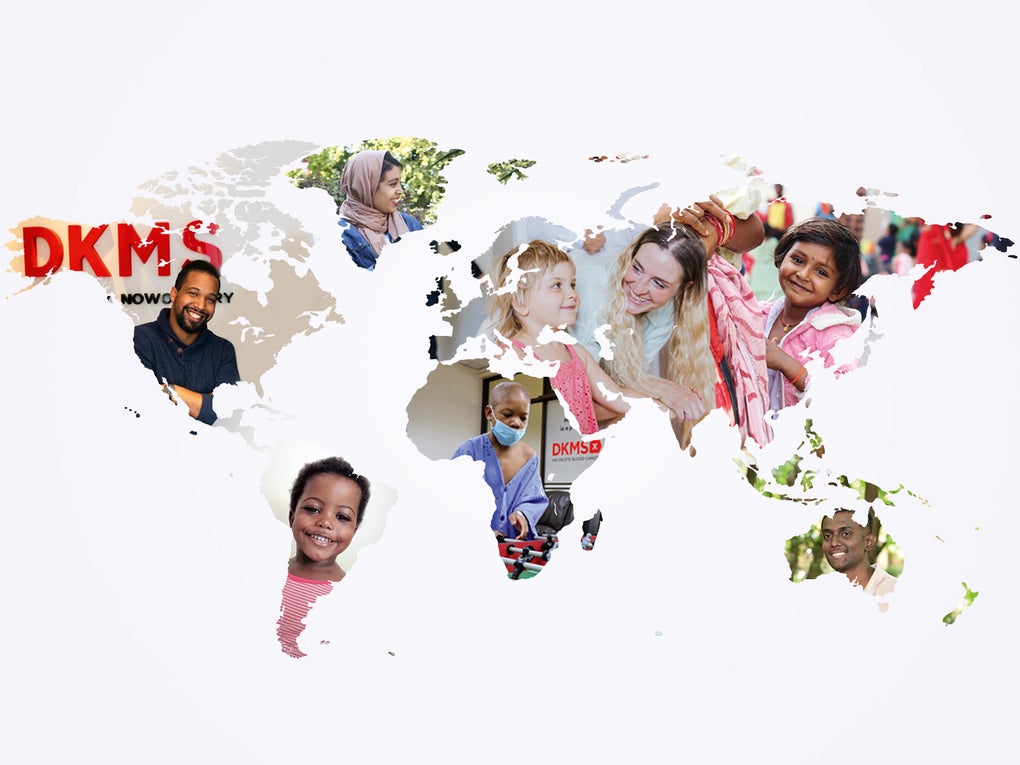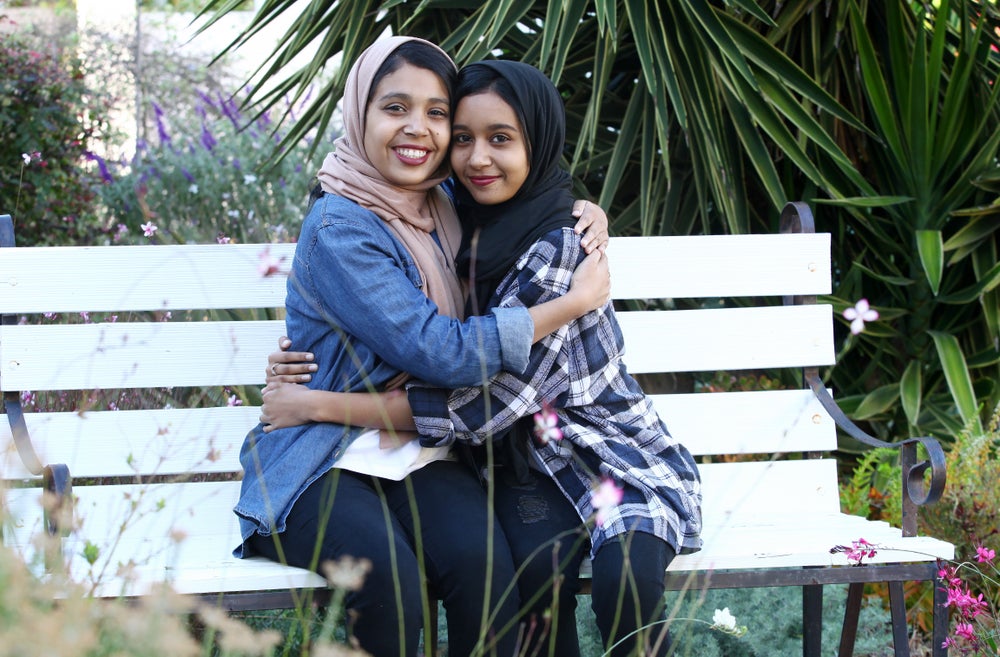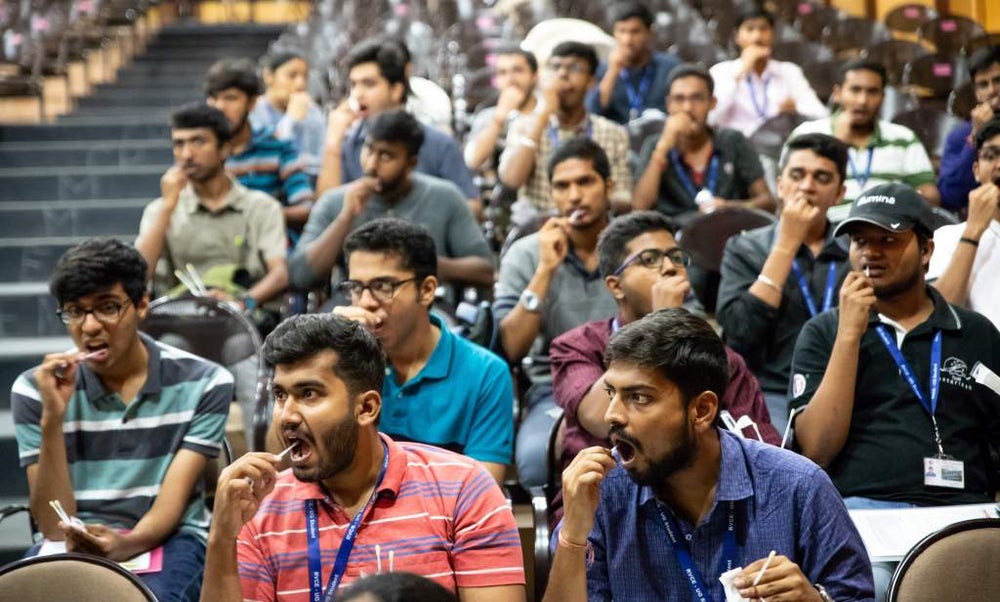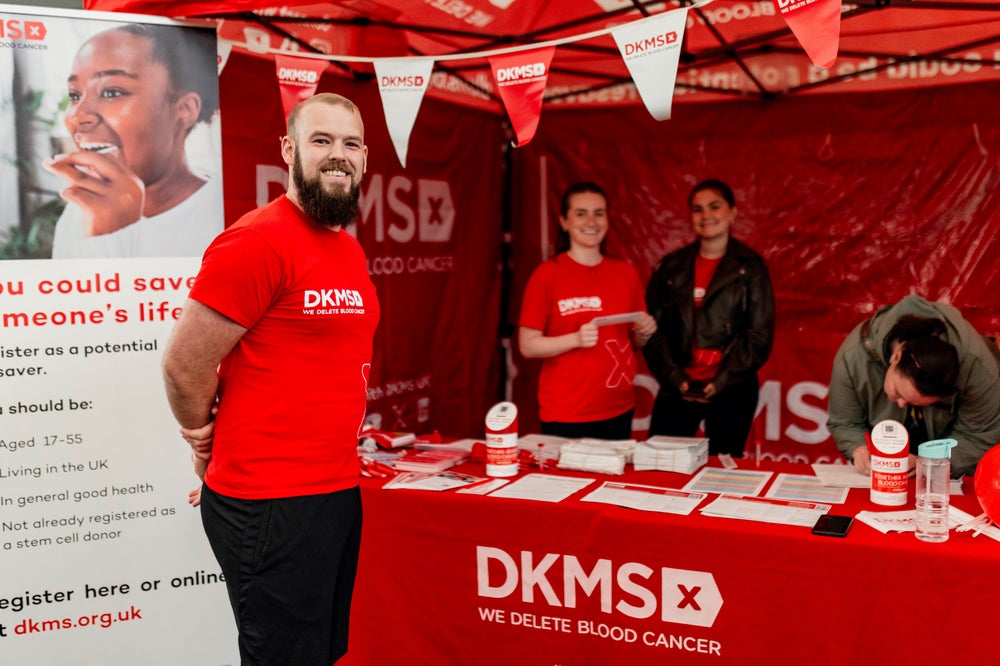Skip to main contentSkip to footer![World map with photos of smiling people from different parts of the world, integrated into the continents, symbolizing DKMS's worldwide activities to unite donors and patients across the globe with different ethnic and regional characteristics. World map with photos of smiling people from different parts of the world, integrated into the continents, symbolizing DKMS's worldwide activities to unite donors and patients across the globe with different ethnic and regional characteristics.]()
![Two young women wearing hijabs are sitting on a white bench in a garden, smiling warmly and hugging each other. The woman on the left is a patient and wears a denim jacket and a beige hijab, the other woman on the right wears a plaid shirt and a black hijab. Both wear black trousers. Lush green plants and colorful flowers surround them. Two young women wearing hijabs are sitting on a white bench in a garden, smiling warmly and hugging each other. The woman on the left is a patient and wears a denim jacket and a beige hijab, the other woman on the right wears a plaid shirt and a black hijab. Both wear black trousers. Lush green plants and colorful flowers surround them.]()
![A large group of around 20 young Indian men, sitting in rows in an auditorium, are swabbing the inside of their cheeks with cotton swabs as part of a stem cell donor registration drive. Most are wearing lanyards and casual clothing, and they appear focused on the process. A large group of around 20 young Indian men, sitting in rows in an auditorium, are swabbing the inside of their cheeks with cotton swabs as part of a stem cell donor registration drive. Most are wearing lanyards and casual clothing, and they appear focused on the process.]()
![A group of four DKMS volunteers standing at a donor drive booth, all wearing red DKMS shirts. One man stands smiling in front of the booth, while the three others standing under a red DKMS tent behind the table and organizing materials. The booth is decorated with DKMS banners, and a large poster encourages people to register as potential stem cell donors. A group of four DKMS volunteers standing at a donor drive booth, all wearing red DKMS shirts. One man stands smiling in front of the booth, while the three others standing under a red DKMS tent behind the table and organizing materials. The booth is decorated with DKMS banners, and a large poster encourages people to register as potential stem cell donors.]()

The Global Challenge
Globally, millions of people are affected by blood cancer and blood disorders
Our mission is to provide as many blood cancer and blood disorder patients as possible with a second chance at life. While medical treatment is continuously evolving, for many blood cancer patients a stem cell transplant remains the only chance for survival.

These patients not only face a lifechanging diagnosis, but a race against time. The challenge: patients often do not find their genetic twin within their families, meaning they rely on a complete stranger to save their life. Finding a suitable stem cell donor further depends on ethnic and regional characteristics in genetic pools. With a significant disparity in the ethnic representation of the donor pool, chances to find a lifesaving match are currently unequal across the world. This is especially true for patients with black, asian, and minority ethnic backgrounds. Therefore, it is crucial to establish a global ecosystem that facilitates access to a large and diverse donor pool.

At DKMS, we started by building what is now the largest donor database in the world, with over 13 million potential lifesavers currently available from around the globe. However, there is still a lot that remains to be done: Only one percent of the worldwide population eligible to donate is currently registered as a blood stem cell donor.
To address the worldwide challenge of fighting blood cancer, we employ a holistic approach to save patients. Our mission spans multiple continents to maximize donor registrations and increase the ethnic diversity of our donor database. We also fund international support programs to enhance the access to treatment for patients who otherwise could not afford it and focus on investments in scientific research that helps improve treatment options.

Our efforts to help patients are based on three pillars:
- Boost Stem Cell Donations: With stem cell donor centers in seven countries across five continents, we are constantly registering potential lifesavers and are increasing the ethnic diversity of our donor pool. Through this work we are raising awareness about blood cancer and other life-threatening blood disorders. Find out more here.
- Improve Access to Transplantation: We are committed to improving the treatment options of affected patients within the framework of international support programs and providing access to stem cell transplantation in low- and middle-income countries. Find out more here.
- Advance Research & Development: In order to improve the chances of recovery for patients, we are also active as a scientific research organization in the field of blood cancer, as well as stem cell donation and transplantation. Furthermore, we support groundbreaking research and honor outstanding scientific achievements in the field of stem cell transplantation. Find out more here.



